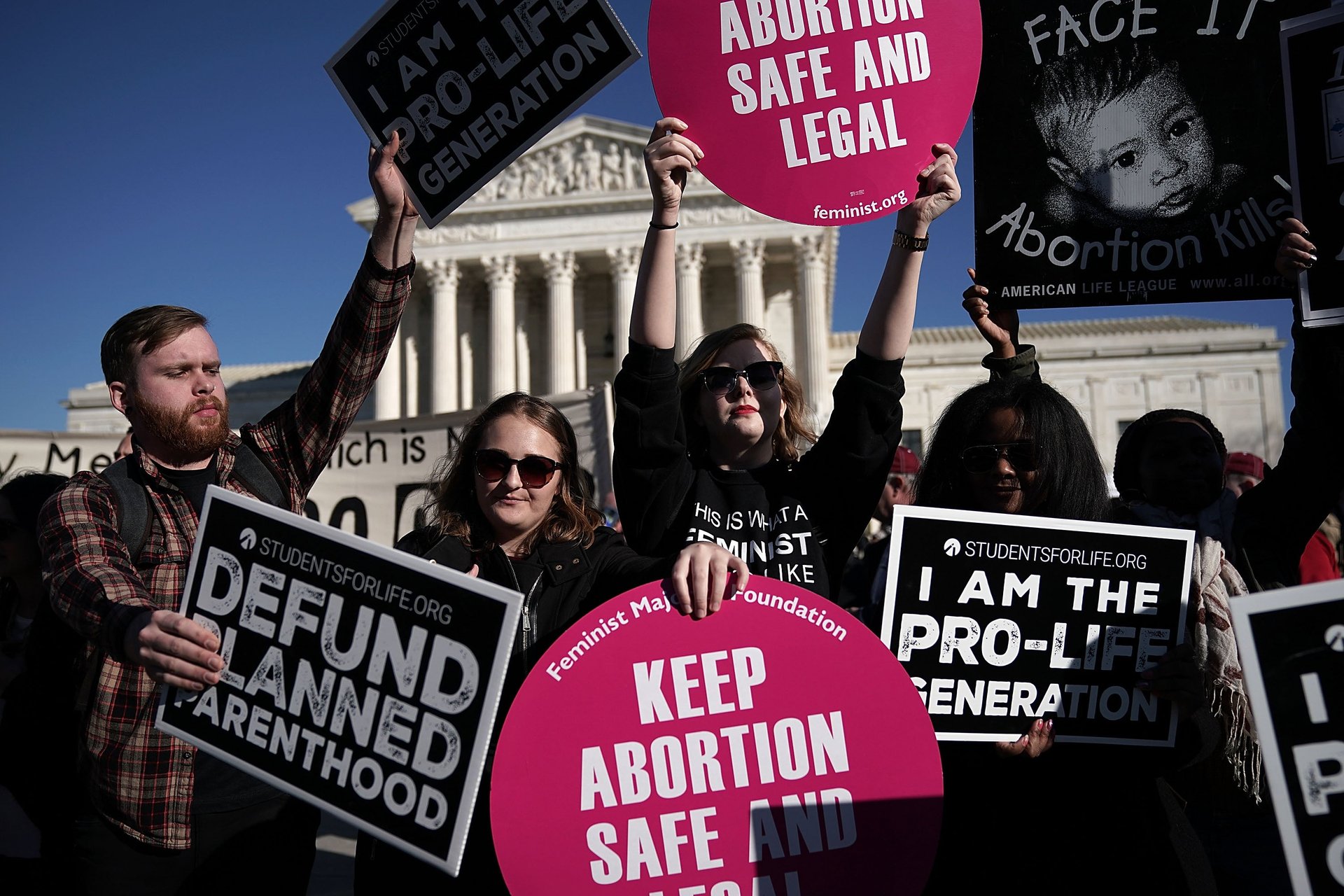Joe Biden has already made abortion a top issue in his reelection campaign
Vice president Kamala Harris will follow Biden's 2024 announcement with a reproductive freedom rally

US president Joe Biden is officially running for reelection in 2024, announcing his campaign in a sleek video posted online early Tuesday morning (April 25). In the announcement, Biden blames “extremist” Republicans for defunding social security, cutting taxes for the wealthy, and rolling back voting rights.
Suggested Reading
Biden also invokes abortion rights early in the video, accusing Republicans of “dictating what healthcare decisions women can make” while a pro-choice protest placard flashes across the screen.
Related Content
Voters can expect more of this campaign rhetoric from the president—despite his historically moderate record on abortion—with last year’s midterms showing that abortion is a winning political issue for Democrats.
US vice president Kamala Harris planned to follow the announcement with a political rally focused on reproductive freedom, offering more proof that the issue has already become a cornerstone of the Biden campaign’s messaging.
Abortion access is a wedge issue in swing states
About two-thirds of Americans believe abortion should be legal, according to a recent Public Religion Research Institute poll, but that majority gets bigger at the state level.
The same poll found that most residents in 43 states and Washington DC believe abortion should be legal in some capacity. This includes swing states like Georgia (57%), Nevada (80%), Pennsylvania (61%), and Wisconsin (64%). Even Ohio and West Virginia—states convincingly won by Republicans in the last few elections—support abortion rights, at 66% and 57% respectively.
It’s not just polling. Midterm elections in battleground states have been more likely to trend blue when reproductive rights are at stake. For example, Democrats outperformed expectations in Michigan last November when the right to an abortion was on the ballot as a state referendum. Conversely, in New York’s midterms—where there was no real risk to abortion rights—Republicans fared better than expected.
In fact, according to CNN exit polls, abortion was the second most important issue to voters in the midterms, with 27% saying the right to choose was their top issue. It followed closely behind inflation, which 31% of voters said was the nation’s most important issue.
Republicans are stuck between a rock and a hard place
So what does this mean for Republicans? Nothing good. Even as public opinion about abortion trends more pro-choice, the GOP’s base remains as hardline as ever, with a substantial number of Republican primary voters in favor of a total ban.
This puts the Republican presidential candidate in the unenviable position of appealing to pro-lifers in the primary before tacking to a more moderate stance for the general election.
Republican Nikki Haley tried to play both sides at a rally the same day as Biden’s announcement, saying that if she won the presidency, decisions on abortion rights would be left up to the states, despite her support of federal abortion restrictions.
“I believe in conversation. I believe in empathy. I believe in compassion, not anger,” Haley said. “I don’t judge someone who is pro-choice any more than I want them to judge me for being pro-life.”
Other contenders have equally struggled. When Florida governor Ron DeSantis, a likely presidential candidate, passed a law this month that banned abortions after six weeks of gestation, he announced the legislation in the middle of the night.
Senator Tim Scott, who is mulling a run, answered questions on his abortion stance by bringing up a conversation with Treasury secretary Janet Yellen about labor force participation, while declining to take a position on the abortion pill mifepristone.
